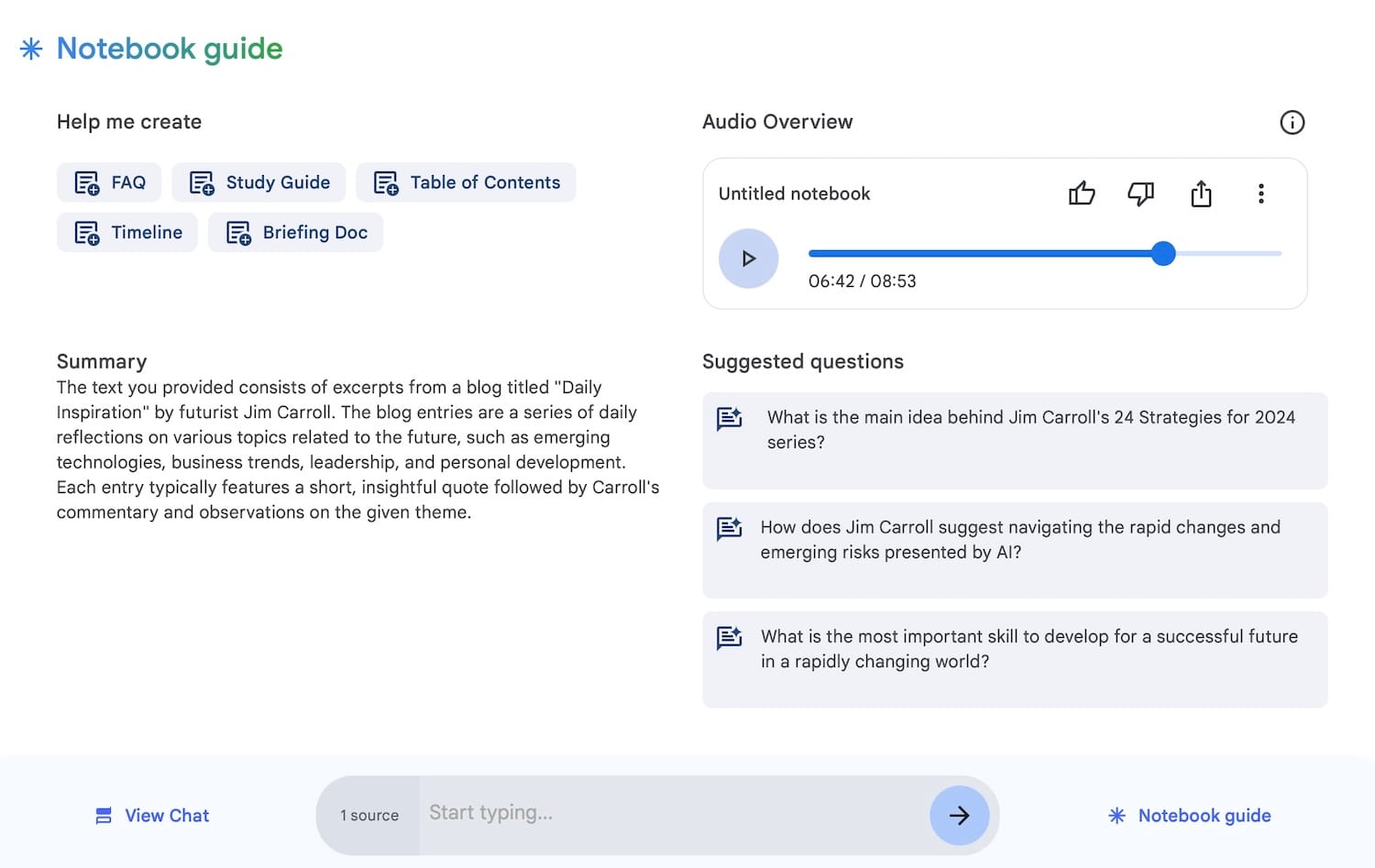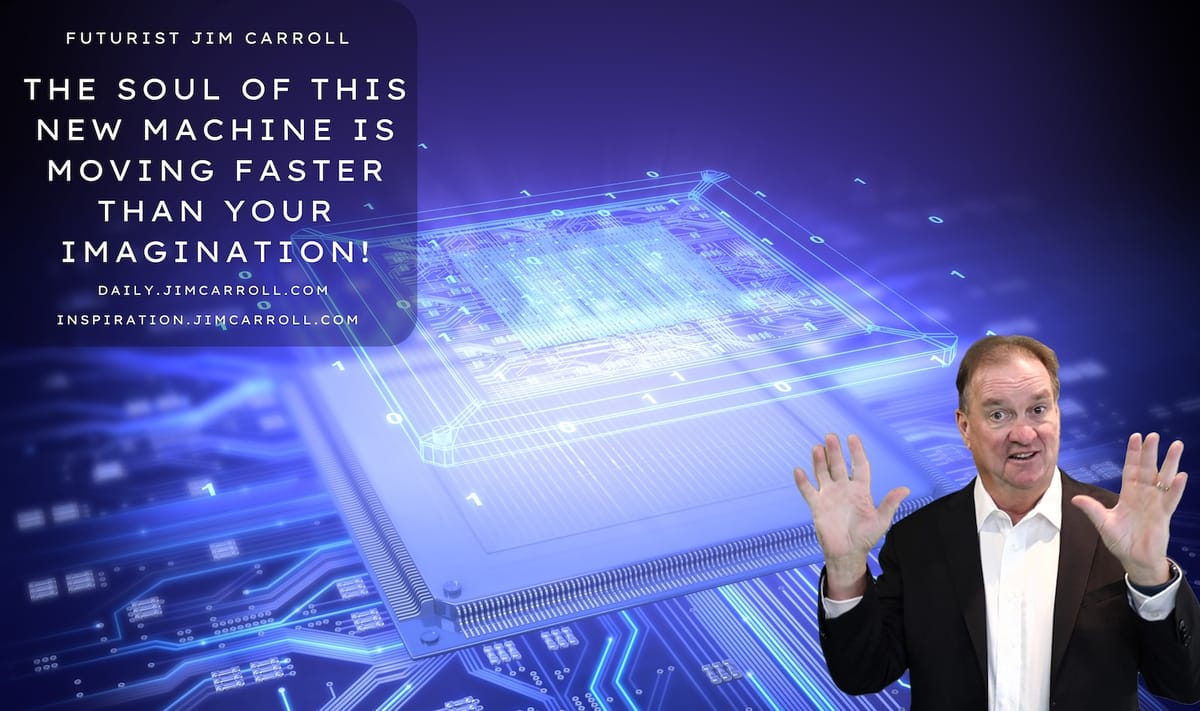"The soul of this new machine is moving faster than your imagination!" - Futurist Jim Carroll
Back when I began my computer voyage, I read the book "Soul of a New Machine," described by ChatGPT this way:
Soul of a New Machine by Tracy Kidder, published in 1981, is a non-fiction book that explores the development of a new computer in the late 1970s. The book focuses on the engineers and computer scientists at Data General Corporation who were working to design and build a cutting-edge computer, the Eclipse MV/8000.
The story highlights the challenges, creativity, and intense dedication of the team as they strive to beat the competition and create a revolutionary product. The book captures the culture of the tech industry at the time, detailing the pressures and sacrifices made by the engineers. It also dives into the technical aspects of computer design while exploring broader themes like innovation, teamwork, and the personal dynamics within the engineering team.
Soul of a New Machine is celebrated for making the complex and often insular world of computer engineering accessible and compelling to a general audience, providing insight into both the technical and human elements of technological innovation.
It was a great book for a young computer nerd who was busy immersing himself in everything involving the ongoing computer revolution.
What was the 'soul' that was being described? ChatGPT weighs in:
The "soul" in Soul of a New Machine refers to the human element behind technological innovation—the passion, dedication, and creativity of the engineers who bring machines to life. While the book focuses on the development of a cutting-edge computer, its deeper theme is about the people behind the machine: their drive, ambition, and the emotional and psychological investment they put into their work.
The engineers at Data General Corporation were not just creating hardware; they were giving life, or a "soul," to a new machine. They poured their expertise, problem-solving skills, and long hours of work into the project, often sacrificing personal time and well-being. The "soul" reflects the idea that, despite the machine being an inanimate object, it embodies the collective effort, ingenuity, and vision of its creators. The book suggests that the soul of the machine is not just in its technology, but in the human endeavour that made it possible.
Fast forward to today - there's a new soul in a new machine being built around AI, and one of the hardest tasks is keeping up to date with all the fast-moving and rapidly emerging new developments. There are thousands of people throwing their energies at creating new tools, ideas, capabilities, and opportunities, and the rest of us can barely keep up.
Which brings me to Google's NotebookLM AI podcast generation tool, which was just announced. Feed it a document, press a button, and you've got a ten-minute 'podcast' with two AI-generated voices talking to each other. I fed it a set of all my Daily Inspiration posts, specifically those written since January 2023. That numbers more than 500 of these posts, with a lot of content covering a variety of topics.

And in an instant, after pressing the generate button, it created a full 10-minute-long podcast discussing my work and the content. I generated an image for the recording and loaded it into Youtube. Give it a listen - the voices are remarkably lifelike, and the content, if I daresay myself, rather compelling.
Here's another version where I fed it just the first half of my 2024 Daily Inspiration posts. Given that I've been speaking and writing a lot about AI, there's a lot of AI content in this one.
Listen to the tone, intonation, and vocal style of the two 'hosts,' all of which are entirely AI-generated., The mind boggles at the sophistication of such a tool and the ease with which it can be used. Our imaginations can barely keep up with the souls of the new machines that are being built around us.
Even so, like most people, I have mixed feelings about this tool. At first blush, the tool is remarkable and opens up the opportunity for the creation and sharing of content that people might not otherwise be able to create. On the other hand, I suspect in just a few weeks, many of us will tire of such a new toy and will realize that warm, engaging discussions between actual humans sound significantly more natural and are far more compelling.
There's no doubt that people are busy building the 'soul' of a new machine, and it's all happening extremely quickly. Being able to track, comprehend, and take part in what is happening in real-time is an ongoing challenge - let alone the need for pondering, thinking, and analyzing the tools that are being created.
We live in interesting times!
Futurist Jim Carroll studies many AI-related trends so that you don't have to.

